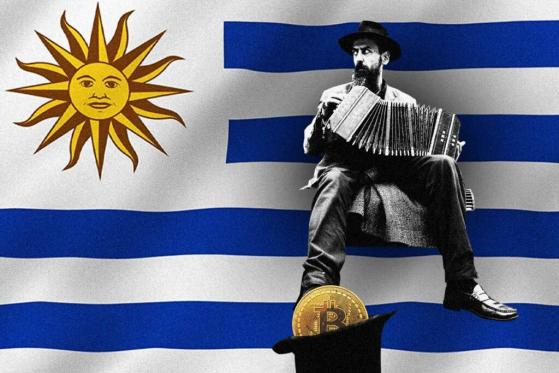- The manufacturing companies inBierto and Urubit reported that the ATM will begin operating with the Uruguayan cryptocurrencies Ferret Token and Urubit.
- However, the Central Bank of Uruguay has made it clear to users that cryptocurrencies are not regulated in that South American country.
According to sources from local manufacturing companies inBierto and Urubit, the ATM will begin operations with Uruguayan cryptocurrencies Urubit and Ferret Token. These tokens can be converted by users to other cryptos such as Bitcoin, Tether or Ethereum.
Likewise, the ATM that will be located in a supermarket in “South American Miami”, as the city is also known, will be used to sell cryptocurrencies and to receive money at market prices. The initiative responds to the need to serve an expanding market throughout the country.
"The first thing this is going to do is comply with something that many people who are linked to the crypto world were asking for," said the director and founder of InBierto, Adolfo Varela.
"Today Uruguay has more than 30 thousand people who are counting,‘ holding ’and exchanging cryptocurrencies almost every day," he added.
The ATM is the beginning of a project that seeks to expand to Montevideo, Uruguay’s capital, and then to the rest of the country and the region, Varela said.
"We believe that America is the ideal continent to implement the use of cryptocurrency blockchain technology due to the fact that currencies have their own economic policies", he said.
The CEO supplemented his comment by saying that crypto “is deflationary” and “protects people’s money.” He stressed that “in a continent that knows a lot about inflation” the greatest achievement of digital money “is allowing people to save and take care of their money.”
On The Flipside
- The adoption of cryptocurrencies in Uruguay has seen “exponential growth”. In recent times, people “began to talk about the issue, to be interested and to get involved,” said the representative of InBierto.
The crypto market in the southern country is not yet regulated, the Central Bank of Uruguay (BCU) recalled in a statement published on October 1 on its website:
"These instruments do not constitute legal tender, as the Uruguayan peso is, they were not issued or have the backing of any central bank” "The Central Bank recommends that users of the financial system and the general public carry out an exhaustive evaluation of the risks assumed when operating with these instruments and take the necessary precautions to mitigate them, taking into account that high returns are generally associated with high risks" , warns the bank.
Why You Should Care?
- The BCU set up a working group to draw up a plan aimed at creating a regulatory framework for operations with digital assets. While recognizing the importance of blockchain technology for the future development of finance.
- Likewise, the issuer is promoting a dialogue with the actors of the cryptographic industry in order to reach agreements and with national and international regulatory entities to learn from their experience.
EMAIL NEWSLETTER
Join to get the flipside of crypto
Upgrade your inbox and get our DailyCoin editors’ picks 1x a week delivered straight to your inbox.
[contact-form-7] You can always unsubscribe with just 1 click.
